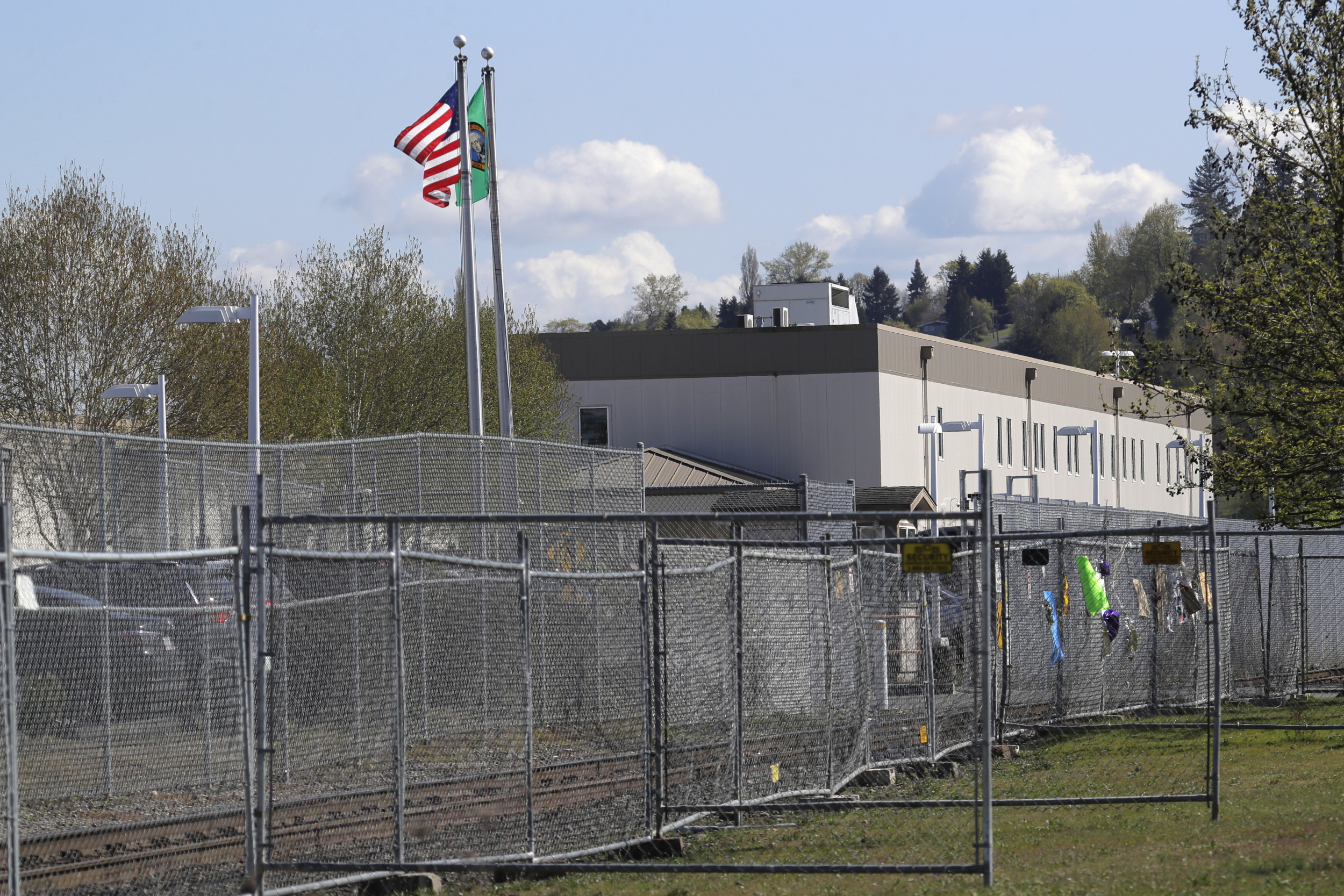While Trump supporters are happy to see criminals deported, they are split over methods for detaining immigrants.
Juan Rivera voted for President Donald Trump, hoping that the president’s efforts to rid the United States of illegal immigration would improve safety in the Southern California city where the 25-year-old content creator lives.
Neighborhoods near Rivera’s home in San Marcos that used to be frequented by migrants with “violent tendencies” do feel much safer now, he said. But he also said he’ll “never forget” seeing U.S. Immigration and Customs Enforcement agents pull over a truck of Latino workers and haul the men into their cars without asking for identification, leaving the empty truck behind.
Some of Rivera’s family members work for U.S. Border Patrol. Other relatives who are in the process of establishing legal residency in the United States “are scared of going to work because they fear that they’re going to get pulled over by immigration,” he said.
Overall, however, Rivera gave the Trump administration very high marks on its handling of immigration because “there’s a lot more public safety.”
Seven months into his second term, Trump’s signature issue – immigration – is still helping buoy his overall sinking approval ratings, making up for a downturn in support for his economic policies. A group of 20 Trump voters Reuters has interviewed monthly since February, including Rivera, illuminated the complex views behind the numbers.
Reuters asked the voters to rate the Trump administration’s handling of immigration on a scale of 1 to 10. Sixteen gave it a rating of 7 or higher, and none rated it below 5.
They universally support Trump’s tightening of U.S. border security to prevent further illegal immigration and his efforts to expel immigration offenders with violent criminal records. But there was less consensus about how Trump is going about the crackdown.
“President Trump was elected based on his promise to close the border and deport criminal illegal aliens,” said White House spokesperson Abigail Jackson in an emailed statement. “The Trump Administration will continue carrying out the largest mass deportation operation in history.”
The 20 voters were selected from 429 respondents to a February 2025 Ipsos poll who said they voted for Trump in November and were willing to speak to a reporter. They are not a statistically representative portrait of all Trump voters, but their ages, educational backgrounds, races/ethnicities, locations and voting histories roughly correspond to those of Trump’s overall electorate.
Seven of the voters said they worried about the means Trump was using to achieve his goals, with some recoiling at the way authorities are rounding up immigrants for deportation.
“I agree that you have to have an immigration policy and enforce it. I don’t agree with kidnapping people off the street,” said Virginia Beach-based retiree Don Jernigan.
Jernigan, 75, said that footage of ICE raids he has seen on ABC and Fox News “reminds me of Nazi Germany. And you would rarely hear me say that name, Nazi, okay? But it does, the way they snatch people.”
Other voters, such as Will Brown, 20, a student at the University of Wisconsin – Madison, urged the administration to pursue even more ambitious deportation goals.
Brown, who said he “couldn’t be more of a fan of Stephen Miller,” the White House aide credited with designing Trump’s immigration policy, noted that the deportation rate of Trump’s second term so far lagged that of the last two Democratic administrations. “Honestly, I don’t think they’re doing enough,” he said.
REALITY DIVIDE
The voters’ attitudes towards traditional news outlets heavily affected their view of Trump’s immigration crackdown.
“If you get your information from one source, ICE is devils incarnate, and if you get it from another source, they’re superheroes,” said Gerald Dunn, 66, a martial arts instructor in upstate New York.
Dunn said he rarely reads or watches news from mainstream outlets because “everything is so exaggerated.” Instead, he browses headlines and watches YouTube videos to stay informed.
He has heard reports of ICE agents detaining non-criminal immigrants, but said such incidents are blown out of proportion.
“You’re going to arrest people wrongfully, and it turns out they shouldn’t have been arrested. That doesn’t mean you don’t arrest anybody.”
In the Chicago suburbs, municipal office secretary Kate Mottl, 62, said she is thrilled with Trump’s immigration policy. She does not believe news outlets that report immigrants without a criminal record are being swept up in raids.
Mottl was dismayed to learn that some immigrants without legal status she knows are afraid of being deported under Trump.
“I tell them, ‘you shouldn’t be worried about that because you’re not a bad person. You’re not committing crimes,’” she said, adding that she feared they were being misinformed by the news sources they watch.
CLEARER PATHWAY TO LEGAL STATUS
Fourteen of the 20 voters said they hoped Trump would improve the immigration system and vetting process to help deserving foreigners with the potential to contribute to the U.S. economy legalize their status more easily in the United States.
Like Mottl, Lesa Sandberg of St. George, Utah, said she knows undocumented immigrants “who are raising their families here, who are working, who are contributing to our economy and our society. And my heart goes out to them.”
Sandberg, 57, who runs an accounting business, rents properties and works for a former Republican congressman’s political action committee, said she is glad to see the administration cracking down on immigrants with criminal backgrounds.
But when it comes to the immigrants in the U.S. illegally she considers friends, she said, “I would never call ICE on them … [it’s] that whole concept of when we know people in the situation, feelings are different about it because we know how bad it is for them.”
David Ferguson, 53, a mechanical engineer and account manager in western Georgia, said some of the foreign students in his daughter’s graduate school program want to stay and work in the United States but fear they won’t be able to re-enter if they visit their home countries, despite having valid visas.
Some immigrants really do “want to have long-term residency and be productive members of our society. Let’s give them a path for that,” he said.
Ferguson said he doesn’t think an amnesty program is necessarily the solution. But Juan Rivera, the Trump voter in southern California, thinks it could attract wide support.
“It’s actually a really big sentiment I’ve been hearing from a lot of local Republican elected officials, that the Trump administration [should] offer amnesty the way that Reagan did,” said Rivera, who does Latino outreach advocacy for his county’s Republican Party.
His own father was able to become a U.S. citizen after former Republican President Ronald Reagan signed legislation in 1986 granting amnesty to about 3 million immigrants without legal status, according to Rivera.
He said he hopes Trump moves the country toward “an immigration system that balances security with humanity.”






